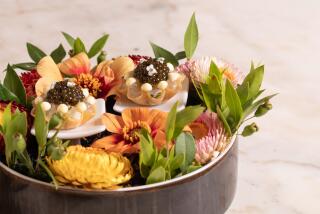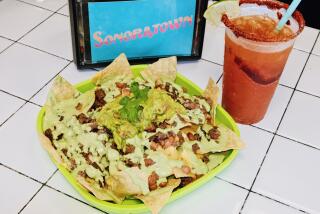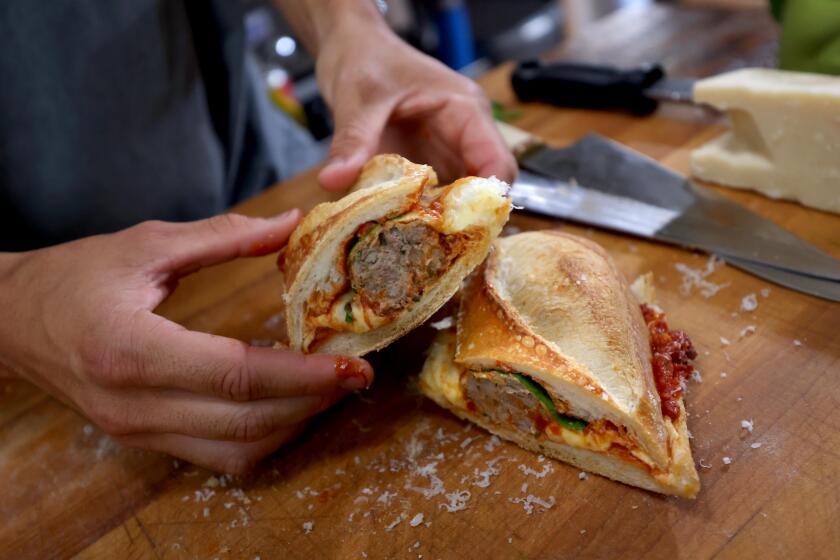The swig easy
NEW ORLEANS — Idrank my first cocktail in New Orleans in my youth, downing fuzzy navels on Bourbon Street with my cousin Caroline Brady. Back then, I was content with cheap booze and plastic cups. Times have changed.
Recently, while visiting Caroline and her family, I found a city with a renewed appreciation for serious cocktails. Since Katrina, the city’s cocktail aficionados have a newfound fervor to revive lost cocktails, preserve cocktail history through a museum, citywide tours and cocktail-focused events and to shake up innovative new drinks.
“Coming to New Orleans means participating in locals’ lives, especially what we eat and drink,” says Lorin Gaudin, secretary of the New Orleans Society for the Preservation of Cocktails and Cuisine. “As our lives change, so does the experience here.”
The first signs of change began well before Hurricane Katrina devastated the city in August 2005. In 2003, Ann Rogers, president of the society, began offering a walking tour of 18 historic watering holes based on Kerri McCaffety’s book “Obituary Cocktails: The Great Saloons of New Orleans.” Rogers also launched Tales of the Cocktail, an annual seminar exploring the past, present and future of the drinks nationwide.
“Suddenly, I realized how much everyone around the world thinks about New Orleans in terms of its drinks,” she says, “yet we didn’t have an outlet to truly educate people.”
Since Katrina, attendance at Tales of the Cocktail has nearly doubled, to 12,000. Mixologists, historians and enthusiasts gather to attend seminars, tastings and cocktail-pairing dinners throughout the city. Some events feature historic watering holes, such as the 200-year-old Napoleon House and the Old Absinthe House in the French Quarter; others are centered on the city’s newer cocktail-friendly restaurants, such as Cafe Adelaide and 7 on Fulton.
For some, cocktail life post-Katrina hasn’t been as easy. Eight months before the storm, the Museum of the American Cocktail opened in a temporary space in the French Quarter. The museum’s permanent exhibit chronicled the history of the beloved American drinks, from the first newspaper mention of the words “cock tail” in 1806 to the present.
“Katrina literally chased us out,” says Los Angeles-based museum curator Ted Haigh. “Any space that hadn’t flooded was a premium, and we couldn’t afford it as a small museum.”
In early 2006, Brad and Lally Brennan and Ti Adelaide Martin of New Orleans’ Brennan restaurant family invited the museum to display its permanent exhibit at the Las Vegas branch of Commander’s Palace. Since that restaurant closed in January, the museum has been without a home and is seeking an affordable location in the French Quarter.
“It’s become more and more apparent that New Orleans is the perfect fit for us,” Haigh says. “In Vegas, it’s all about the biggest and brightest pyrotechnic show, but in New Orleans, it’s about the celebration of drinking and its symbolic place in history.”
The renewed interest in New Orleans’ cocktail culture isn’t limited to history and preservation. The city’s modern-day mixologists and bar chefs (titles that bartenders at old-school haunts like the Napoleon House would eschew) are focusing on fun, experimental cocktails.
“In a city that’s known for its traditions, the storm caused a more heightened awareness of the new -- the new tonic waters on the market and herbal infusions to new cocktail combinations,” Gaudin says.
For Lu Brow, 41, bar chef at Cafe Adelaide in the Loews New Orleans Hotel, it took tragedy to get her behind the bar permanently. Brow worked as a restaurant manager for years but “secretly always wanted to be behind the bar,” she says, “so I’d slip behind the counter when my staff was on cigarette breaks.”
It wasn’t until Katrina, when she lost her home and had to live in a hotel for five months while working odd jobs, that she finally made the leap.
“The storm made me fearless. If you can get through something like that, you get pretty immune to risk and just go out there and do it,” Brow says.
Before Katrina, the hotel relied on standard bar mixers. With all the liquor, wine and mixers destroyed in the storm and none available in the city, Brow was forced to make everything from scratch. “Herbal infusions, bitters, mixers -- you name it, I made it,” she says. “I even had to chip my own ice.”
Since taking over the bar, Brow has become one of the city’s most innovative mixologists. In 2006, she introduced the Bar Chef Table, a four- and five-course food-and-cocktail-pairing menu based on updated classics such as the Trace (named after executive chef Danny Trace), with bourbon, honey, orange Curacao and house-made kumquat bitters.
Even in Uptown, far from the late-night scene of the French Quarter, two post-Katrina restaurants are turning out new, interesting cocktails. At Iris, writer-bartender Alan Walter, who moved to the city after the storm, “got so into the cocktail flavors, I just kept playing around and couldn’t stop.”
Walter’s seasonal cocktails have included a parsley julep with gin, muddled parsley and lime juice and his riff on a classic Pimm’s Cup with muddled plum sake, sparkling wine, citrus zest and nutmeg.
At Vizard’s on the Avenue, manager Ron Cooley’s whimsical concoctions include a BLT with Beefeater gin, lime juice and tonic and the St. Charles Streetcar with brandy, Cointreau and house-made sour mix.
Fuzzy navels in plastic cups still line Bourbon Street bar windows. But on my next visit, Caroline and I will be sidling up to the Old Absinthe House bar to sip its signature frappe, made with real absinthe for the first time in almost 100 years, now that it’s legal again.
Bartender, we’ll have another.
--
(BEGIN TEXT OF INFOBOX)
Bottoms up
NEW ORLEANS COCKTAIL TOUR
4 p.m. daily, $24; 21 and older only
(800) 535-7786, www.graylinenew orleans.com
TALES OF THE COCKTAIL
July 16 to 20
(888) 299-0404, www.talesofthecocktail.com
THE MUSEUM OF THE
AMERICAN COCKTAIL
www.museumoftheamerican cocktail.org
--
On travel.latimes.com
Ten great places to tip a drink in New Orleans, at latimes.com/drinks.
More to Read
Eat your way across L.A.
Get our weekly Tasting Notes newsletter for reviews, news and more.
You may occasionally receive promotional content from the Los Angeles Times.










